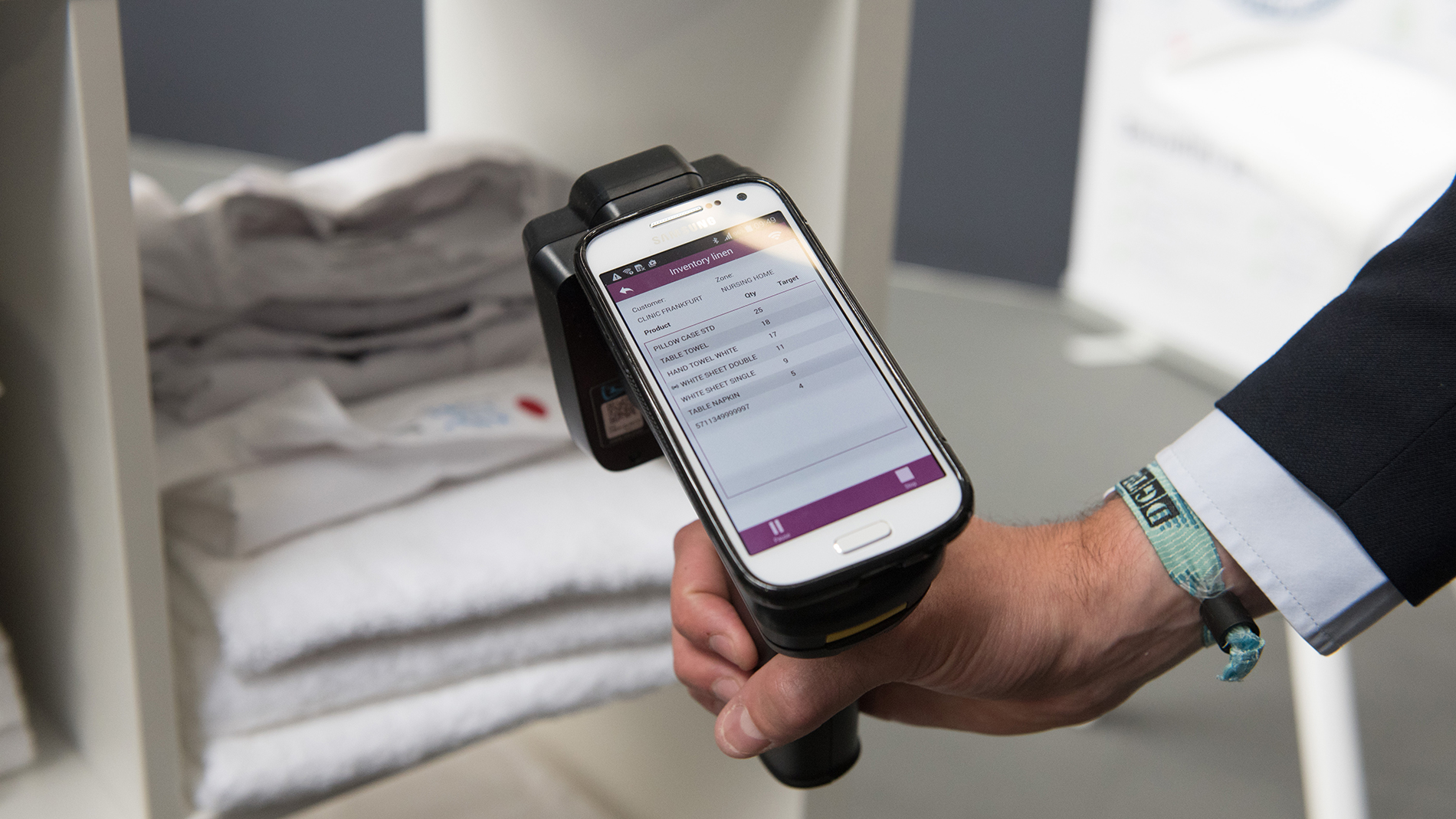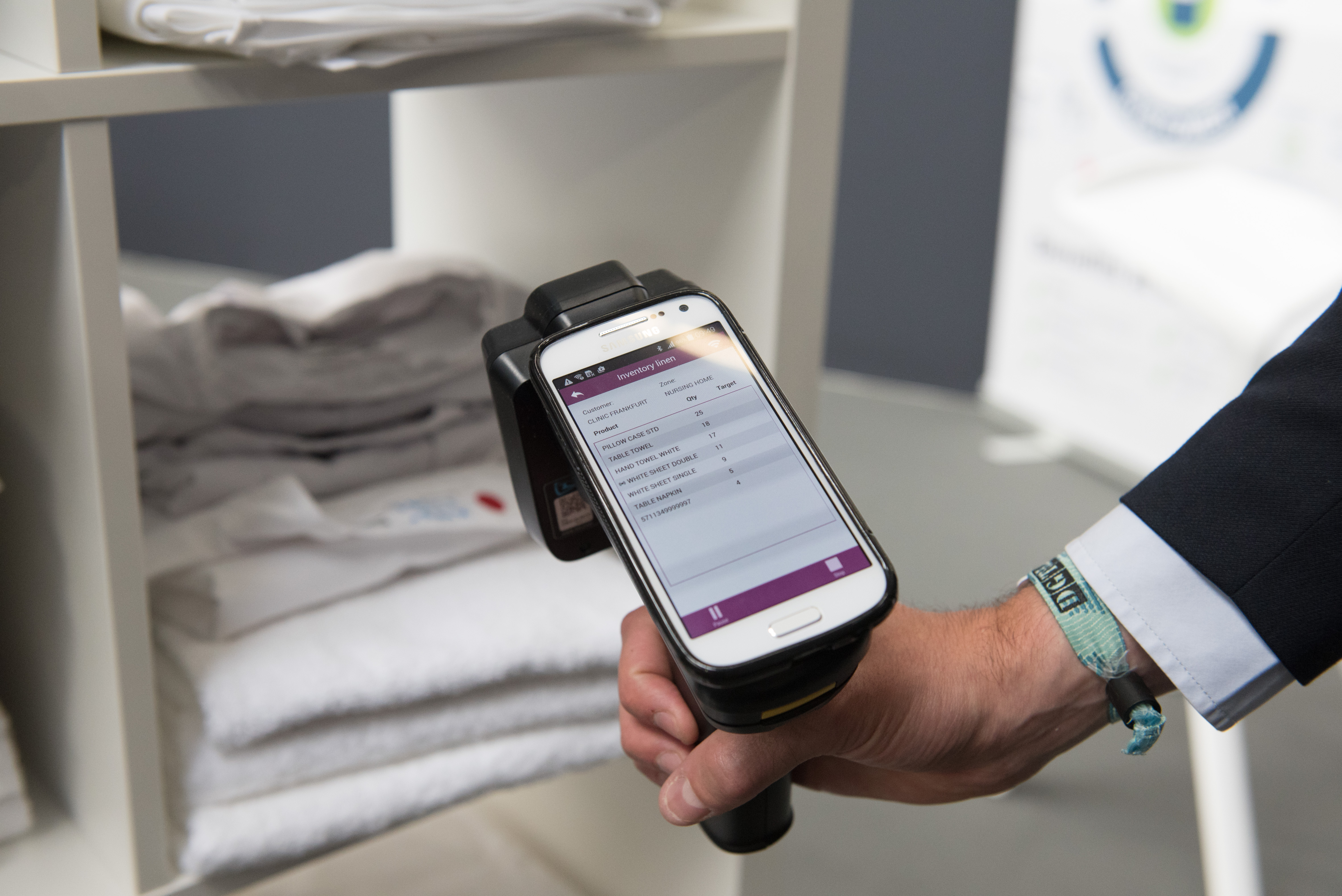Shopping and errands are increasingly planned and transacted on smart phones, tablets and PCs. Access to shopping portals around the clock has fuelled high expectations of quick and easy access to services, primarily with millennials, but also other age groups. Instead of being bound by opening times, they want to be able to complete their tasks around the clock with just a few clicks.
This change in mindset has long since taken hold of the textile cleaning sector as well. "These days people who want to take shirts, and men’s and women’s suits, in for cleaning generally look for the nearest specialist company on their smart phones", as Daniel Dalkowski of the European Research Association for Innovative Textile Care (Europäische Forschungsvereinigung Innovative Textilpflege - EFIT) in Berlin relates. "A cleaning company’s homepage and its entry on search engines or social media is the first source of information for people who are travelling, on holiday, or relocating. In collaboration with the University of Applied Sciences Landshut (Hochschule Landshut), we have prepared a guide to getting into the online laundry and textile cleaning business, in order to give companies an overview of the opportunities the internet provides for winning and retaining customers. It’s already available to our members, but we want to present it to a wider audience at Texcare."
Acquiring customers from the younger generation
Apps are another element for unrestricted access to textile cleaning companies. User programmes, which are tailored to the sector and a company’s individual needs, connect the consumer with 'their' service provider, who has the facility to make customisable information available via the digital customer card. "This can range from the current level of orders and an overview of their order history to bonus programmes, newsletters, discount offers and subscription packages. In any event, they should offer an online payment function", as Stefan Düchting knows. He supports cleaning companies along the way to online business with his software solutions. "An easy-to-use app makes textile care attractive, particularly for 'digital natives', because they expect uncomplicated order processing and communication on their smart phones. There needs to be intelligent software behind the application for this, or a cloud-based web interface providing app users with data from the company." Reliable coordination of system interfaces is the primary task here; otherwise the system gets poor reviews straightaway.

Online portals as business intermediaries
In addition to the customisable software systems for one particular cleaning company, there are also various cleaning portals on offer for digital communication between consumers and textile care companies. These follow the principle of hotel booking platforms and act as intermediaries between the two sides: The customer order is entered on an app and forwarded via the portal to a connected textile care company. They then deal with the order received according to the terms and conditions agreed. Pickup and delivery of the goods are usually part of the service here.
Industry 4.0 in textile cleaning
Thanks to easy-to-use apps, getting cleaning done is an unqualified success as far as consumers are concerned, and this is accompanied by an increased level of system digitisation on the part of cleaning companies. There are fully automated machines for taking in and returning laundry. They can receive the customer’s laundry around the clock, put it through the cleaning process and return it, all via an app. RFID chips are also used: with the help of these small transponders, which are directly attached to customers’ garments, readers can follow the current position of a clothing item in the cleaning process and automatically send out the finished goods when the customer enters the shop.
Digital assistants
Regardless of the degree of automation in a textile care company, two main conditions must always be met: the processes need to run smoothly and faults must be easy to fix. "Because employees in textile cleaning companies generally don’t have the machine and process engineering know-how, the machines need to provide the appropriate expertise and include mechanisms that can detect faults", as Dirk Freitag, Managing Partner of Multimatic Ilsa (Melle, Germany) emphasises. "In our cleaning machines, we are installing more and more sensors and measuring technology in trouble spots, so that we can quickly and clearly identify the cause of a malfunction."
An answer to every question
The manufacturer of textile cleaning machines, Böwe Textile Cleaning, from Sasbach, also uses modern technology to communicate technical expertise. The company has developed an app that can be used on Android and iOS systems to convey extensive knowledge on all areas of laundry care to their users. "In everyday operation, many different questions arise about the machines, procedures and textiles received", as Böwe’s managing director Frank Ziermann relates. "The Böwe app covers all the concerns of textile care companies: the information ranges from operational planning to calculating installations, solvent characteristics to correct stain removal, and fibre technology to handling complaints."
Texcare International 2020, which is taking place from 20 to 24 June in Frankfurt am Main, will present numerous innovations in the field of digitally-supported business models to the textile cleaning sector. It will showcase products and services ranging from customer marketing supported by apps, to clever systems for process automations, and online documentary and learning support. With these and other solutions, exhibitors are paving the way from the analogue to the digital world.
In addition to Texcare International, Messe Frankfurt organises trade fairs and conferences for textile care in all major economic regions of the world. (www.texcare.com/brand).
All the news about events in the textile care sector can be found at: www.textile-care.messefrankfurt.com/newsroom.
For further information, go to:
Background information on Messe Frankfurt
Messe Frankfurt is the world’s largest trade fair, congress and event organiser with its own exhibition grounds. With more than 2,600* employees at 30 locations, the company generates annual sales of around €733* million. We have close ties with our industry sectors and serve our customers’ business interests efficiently within the framework of our Fairs & Events, Locations and Services business fields. One of the Group’s key USPs is its closely knit global sales network, which extends throughout the world. Our comprehensive range of services – both onsite and online – ensures that customers worldwide enjoy consistently high quality and flexibility when planning, organising and running their events. The wide range of services includes renting exhibition grounds, trade fair construction and marketing, personnel and food services. Headquartered in Frankfurt am Main, the company is owned by the City of Frankfurt (60 percent) and the State of Hesse (40 percent).
For more information, please visit our website at: www.messefrankfurt.com
* preliminary figures 2019
Download
- The smart phone is revolutionising textile cleaning (pdf, 108 KB)

Press photograph copyright
All of the photos on this website are protected by copyright. All rights of usage and exploitation are held by Messe Frankfurt GmbH. These photos may be used free of charge for reporting on the event in question and/or on Messe Frankfurt. We would ask you to provide us with a specimen copy of any print media published, and to notify us of use in electronic media (internet). All photos must include the source citation “Messe Frankfurt GmbH / Name of photographer”. No changes are permitted beyond modification to suit the required format. Any other use, particularly usage of a commercial nature, requires the prior written consent of Messe Frankfurt GmbH.